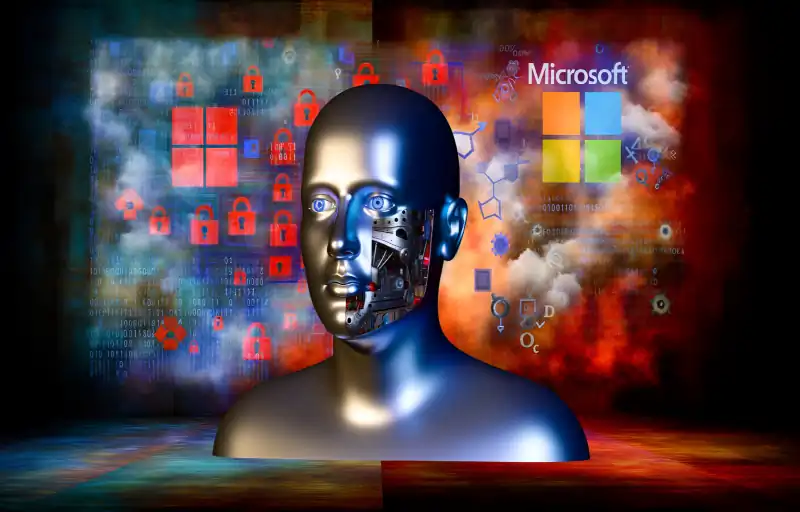
“Microsoft’s Race to AI: Revolutionizing Productivity with Copilot, Guarding Against New Age Hackers.”
The Security Implications of Microsoft’s Integration of Generative AI (Copilot) into Core Systems: Balancing Productivity Gains with Cybersecurity Risks
Microsoft’s ambitious stride towards integrating generative AI into its core systems marks a significant leap in workplace productivity. Imagine querying about an upcoming meeting and receiving a comprehensive briefing from an AI system that has already sifted through your emails, Teams chats, and files. This scenario isn’t a peek into a distant future but a present reality with Microsoft’s Copilot AI system. The technology promises to streamline workflows and enhance efficiency, potentially transforming how we manage our digital workspaces.
However, as we marvel at these advancements, it’s crucial to consider the flip side of the coin—security risks. The same capabilities that allow AI systems to access and analyze vast amounts of data can also become vulnerabilities. Hackers, always on the lookout for weak spots in digital armor, could potentially exploit these systems to access confidential information. The question then arises: how does one balance the undeniable benefits of AI-driven productivity with the imperative of cybersecurity?
Microsoft is certainly aware of these challenges and is taking steps to mitigate risks. By incorporating robust security measures and continuously updating them, the company aims to shield its AI integrations from potential breaches. Yet, the dynamic nature of cyberthreats means that this is an ongoing battle. Hackers continually evolve their strategies as soon as new defenses are developed, creating a never-ending cycle of attack and defense.
The integration of AI into such core systems also raises broader ethical and privacy concerns. With AI systems capable of analyzing deeply personal data, ensuring that this technology respects user privacy becomes paramount. Microsoft must navigate these waters carefully, balancing technological innovation with ethical considerations to maintain user trust.
There’s the issue of dependency. As businesses become increasingly reliant on AI systems like Copilot, they must also consider the risks associated with such dependence. What happens if the system goes down? How much autonomy should these AI systems have? These are critical questions that businesses need to address as they integrate more AI into their operations.
Microsoft’s move to embed generative AI at the heart of its systems is a bold step towards futuristic productivity tools. While this integration offers significant advantages in terms of efficiency and workflow management, it also brings to light several security and ethical issues that need careful consideration. Balancing these aspects will be key to harnessing the full potential of AI in enhancing workplace productivity while safeguarding against the evolving landscape of cyberthreats. As we continue to integrate these advanced technologies into our daily routines, staying vigilant and proactive about potential vulnerabilities will be essential in navigating the future safely and successfully.














